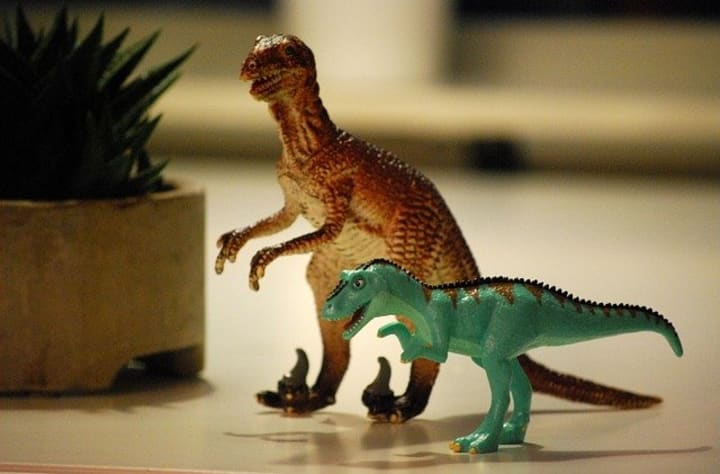Starting a Meditation Practice: 3 Obstacles to Overcome
Learn your reality well, gently, and honestly.

The Entire World in 64 Squares

Le t’s start strong. People want answers. They want to know the rules of the game before they play, or at least be assured they’ll have fun learning them.
In my time practicing meditation, studying the practice, and talking about practicing with others, I’ve targeted 3 things that stifle people on the way to understanding what “game” they’re even playing.
Bear with me while I lay out this metaphorical instruction manual:
1. Relating “obviousness” to a lack of difficulty, ease of application, or boredom.
2. Preferring knowledge to “knowing the knower,” an attachment to words. Dismissing or auto-filling concepts based on our preconceived, colloquial connotations. Try this one: Monopoly. Feel the rage boiling up inside? (I do) Another: Spiritual. How many ideas immediately spring forth?
3. Substituting direct experience with intellectualization. No one becomes an expert through talking about being an expert… unless you’re in the business of selling paid courses (zing).
Funny thing about the rules, though. You read them aloud. Everyone vaguely follows along with glazed expressions. Then someone says they’ll just figure it out after a few practice rounds. Yeah. That tracks. At some point, we all have to have to sit down and pay attention in order to play.
Board games aren’t really my thing. However, I am the “Let’s play a board game!” type of person when it comes to metacognitive awareness. I try to be more charming and less insufferable about it than that, but you can’t please everybody.
I avoid board games, I imagine, for many of the same reasons people lose interest in building a personal meditation practice. I know I’ll have some fun if I just sit down and engage. But it takes the right setting. The right people. The right mood. The right game. Basically, it takes a whole lot of things going right for things to go the right way.
What’s it all for?
If I haven’t made it clear: I’ve come to believe that there is nothing more misunderstood in modern circles of personal development than meditation.
I don’t mean to say that I’m over here with “the truth,” and that there’s a faceless “they” out there with all the wrong ideas. There’s nothing about meditation that can be screwed up so bad as to become unrecognizable. There’s 7.6 billion (and counting) ways down a rabbit hole, and wonderland is never going to look the same for any two of them.
But that’s part of meditation’s elegance — getting to wonderland is less important than understanding and accepting why you want to get to wonderland. There’s a whole lot more that goes into what we’re even implying by trying to get anywhere, or understand anything, but I digress. Knowing you’ve got nowhere to be kind of takes a lot of the pressure off, right? (Maybe that’s my introversion speaking.)
There’s a reason people want to get into meditation, a reason they start, and a reason they stop. The intention is solid. The expectations are not.
Meditation is not a band-aid for trauma, and it isn’t a productivity pill. It’s not a vehicle for corporate success, and it’s not a marriage counselor.
However, it can be the practice of contextualizing those things.
As Jed McKenna puts it:
“I don’t have something you don’t. You believe something I don’t.”
I’d hazard to guess most people partake of some metacognitive practice in their daily lives. Preparing your coffee a specific way. Shutting your eyes for a few brief moments after sitting at your desk. Taking a deep breath and holding your tongue in traffic rather than allowing your internal automated voice message to play out… you know the kind I mean.
These things are practice. They are calculated efforts to observe our reality, adjust behaviors, and hopefully derive some insight about the way we want to (or should) live. But those examples are also habitual. They’re just “what we do,” they don’t stand out, and they’re not special. That’s boring, ordinary, old reality we’re talking about, isn’t it?
Obstacle 1: The Obvious is Not Easy

There is a popular axiomatic notion people like to employ:
“It’s just common sense.” Duh.
Hallmark cards and their associated adages are known to be the stuff of banality.
No one really wants to listen to the guy at a music festival yelling, “Love is everything!” through a loudspeaker. Mostly.
Conversely, everyone born after 1990 has plastered at least a dozen agreeably insightful quotes across their social media, bodies, or their home.
People are enamored by profundity. Please, take your “Love is everything,” and give us Dostoevsky, give us Tolstoy, give us Sylvia Plath or Jane Austen. Give me Shel Silverstein and a hundred quirky illustrations. Give me The Giving Tree.
We want so badly to see in the world what we already know, but in richer colors. The profound is so attractive because it elicits a deep sense of preverbal knowing. The next time you hear, or say, “That’s exactly how I felt, but could never put it into words,” take a moment to examine what that insinuates. The “that” was already apparent. It was already felt, already experienced. It was obvious all along.
Our relationship with the obvious has an immense impact on the way we engage with new tasks, motivate ourselves, and conduct inner dialogue. We can read the rules a thousand times, but until we hammer out the practice rounds, we’re often stuck in cycles of cynicism (the game is stupid), boredom (the game is too simple), and/or rejection (the game has nothing to offer me).
If there is such a thing as “common sense,” it’s that doing the simplest possible things regularly — not out of dogma, but real vision — is a common denominator in all developmental sectors be it sports, arts, business or otherwise.
Until we can take the obvious and begin seeing it directly in our moment-to-moment experience, it’s just a depleted proverb that can be acknowledged passively. Understanding that integration of the obvious is the aim of meditation — rather than coming up with cool, trendy ways of stating the obvious — is critical to overcoming the presumption that it’s all just unnecessary or redundant. Directly experiencing the obvious recharges it into the profound.
If you find yourself saying, “Ugh, I get it, can I just move on?”, this likely applies. It was certainly my first major hurdle.
Obstacle 2: Knowing the Knower & Attachment to Words

Do you know what you think?
This is a fun exercise from Eckhart Tolle and others: What is your next thought going to be?
No cheating.
I’ve asked this to a number of people before. Answers vary. In some cases, they’ll respond that they thought of food. That’s actually pretty amusing, and says something about habitual thought patterns. But it’s also a misunderstanding — I’m not asking about what thought appeared immediately after the question.
For others, they’ll admit that a blank space momentarily opened up in their mind. For a brief time, there was a gap in thinking.
This is particularly interesting when you consider most questions will actuate a clearly identifiable mental response almost immediately. Quietude is rarely the mind’s go-to reflex. What’s there to make of that silence?
Reflexive thinking is so ordinary that it’s generally taken for granted. That’s just the way things are, and the way things are (try to) tell us what we are. It’s only natural to become identified with this state of reactivity.
The result? We start sensing things through the lens of our thoughts about other things — rather than receiving things in a standalone manner, exactly as they are in a given moment. A board game isn’t just a board game. It’s all the experiences you’ve had with it, all the things you’ve heard about it, all the things you’ve thought about it, and on, and on, and on…
Famed Scottish-American writer and naturalist, John Muir, wrote,
“When we try to pick anything out by itself, we find it hitched to everything else in the universe.”
Every thought we have originates codependently with every other thing in our experience. So how much autonomy do we have over our thoughts when, observably, we cannot predict them? How do we know our thoughts are based in truth if they’re ultimately just a composite of other people’s thoughts, personal memories, and experiential stimulus? When we reject or desire something, why are we doing it? Are we sure? Or are we letting the automated voice message in our head tell the story again?
The answer is this: there is no knowing your thoughts. There is only yourself; knowing the knower (and if you get deep enough down the rabbit hole, you might find that there’s no knower, either… it’s turtles all the way down). The thought is ultimately less important than directly seeing the causal chain of events contributing to the thought. In overcoming this hurdle, we’re able to edit and subsequently co-author our behavioral programming.
Reading isn’t hard because it’s boring (though that is sometimes the case). It’s boring because the mind is distracted by the idea of wasted time, lack of productivity, anxiety, and a general lack of directed concentration — and the result is the feeling of difficulty. The danger is in the mind identifying with these distractions: “I’m wasting my time,” “I’m not being productive,” “I can’t pay attention.” Keep in mind, maybe that book just isn’t your thing. But that’s also something we can actually experience for ourselves if we know how to look.
Instead, understand that these things are bundles of sensations the mind is grouping together into a kind of fan-fiction. There’s no actual need to bond with them! Focus and attachment are cognitive muscles. They can grow, and they can atrophy. Some of us have more, some less. With practice, we can evaluate where we stand and begin to train in a way that works for us.
Obstacle 3: The Intellect is a Tool (Not an Identity)

The third obstacle is, in my view, the most insidious and difficult to surmount. It fuses elements of the first two obstacles. That said, it’s the most simple conceptually. Cue obstacle 1 and a monologue on the obvious…
Intelligence is essentially a skill — a mechanism for navigating the rules and toys of the ordinary world. It builds computers, develops more efficient agricultural systems, and structures businesses and asset markets. It records, predicts, criticizes and analyzes. Most of all, it’s clever. It’s primary directive is to ground us in a sense of “knowing” the world around us, like a sophisticated search engine for every bit of useful information we’ve accumulated.
Because of the intellect’s efficiency, the mind becomes agile in navigating day-to-day business. Shortcut here, shortcut there. Heard this about that, so we’ll do this to fix that. The mind rarely needs to consider what is actually happening, because it has already pre-empted the situation with a highly educated guess.
But this has its drawbacks. When we reduce something to pure intellectualism, we strip it of its origin and substitute a collage of our own making. At this level, the mind doesn’t feel an emotion. Instead, it dedicates its energy to explaining, avoiding, or justifying it.
The emotion becomes a projection; something that the external has given or forced upon us. In actuality, it’s the result of an internal system!
As it pertains to meditation, there’s usually a propensity among the secularists, non-spiritualists, and other skeptics that characterizing something is the same as fully grasping it. On the more negative end, the criticisms might infer that sitting down and simply being with oneself is just woo-woo nonsense; Eastern mysticism packaged with a New Age finish. When you’re targeting an intellectual, subjective notion of something — and not the thing itself — it’s pretty easy to imagine scenarios where logic wins out every time.
In my own case, I found myself writing about principles of awareness, conscious experience, and “transcendence” long before I’d directly experienced anything of the sort. When it came to actually practicing, I’d ‘write it off’ as unnecessary — I could pontificate about it, and that was enough. Meanwhile, my life was in direct contradiction to huge swathes of those written tenets. I was not fully experiencing the things I spoke about.
Everyone’s a critic! Every fight night party has a few self-proclaimed experts pointing out the flaws in a championship boxing strategy.
Everyone wants to be the one that “gets it.” I get it! I understand it! And I’ve got a well-oiled intellectual machine synthesizing all the necessary justifications to be assured of that.
Then we run into a 5 year relationship that ends. We reach the summit of a mountain overlooking an awe-inspiring landscape. A close family member dies suddenly (or slowly). We drain our life savings during a medical scare. We save a child from drowning. We adopt an injured, stray animal off the street. We hear that our parent is proud of us.
What use is intellect here? What has intellect taught us about the things we feel in these moments? Has the intellect prepared us to process these things?
Does studying a jab make you a world class boxer? You get it, right?
Practice.
Practice.
Practice.
That’s all meditation is. Drop the preconception of magical, mysterious ritualism. The “It doesn’t work for me”-isms (what is your “it,” anyway? what is your “work,” anyway?). It’s fine if one way isn’t right. It’s fine if 1000 ways aren’t right.
There’s no right way. But if you’re going to figure out your rules, you’ve got to sit down and play.
Practice for life. Practice for processing your emotions. Practice for knowing who and what you really are. Practice for seeing others for who and what they really are.
Practice finding what you’re really looking for. I hope you find it.
About the Creator
Bryson Peacock
Writing as communion.






Comments
There are no comments for this story
Be the first to respond and start the conversation.